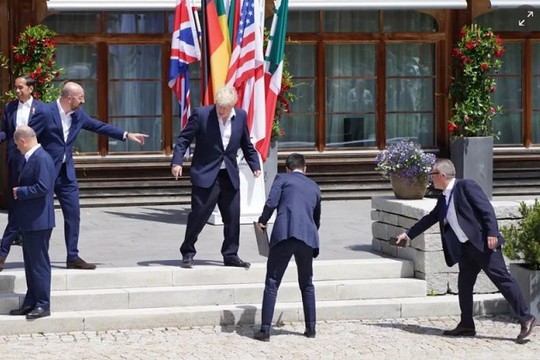Western leaders do not understand where to step…
The British “Guardian” describes in detail what European residents will be deprived of in the near future. Anti-Russian sanctions will hit the well-being of the Europeans themselves. They were led to this sad result by their own leaders of the European Union.
Energy ministers from the 27 EU member states, except Hungary, backed a voluntary 15% reduction in gas usage over the winter.
Here are the consequences:
- In France, air-conditioned shops have been told to keep their doors shut or risk a fine of €750 (£635). They have also agreed a plan under which they will switch off illuminated signs “as soon as the store closes” and “systematically reduce lighting intensity” by reducing lighting levels in shops. Illuminated advertising has been banned between 1am and 6am everywhere except in railway stations and airports. Public premises will also be required to set thermostats higher in summer and lower in winter, while the public will be expected to turn off WI-FI routers and televisions when they are away and switch off lights in rooms they are not using.
- Cities in Germany are switching off spotlights on public monuments, turning off fountains, and imposing cold showers on municipal swimming pools and sports halls. Hanover became the first large city to announce energy-saving measures. Municipal buildings in the Lower Saxony state capital will only be heated from 1 October-31 March, at no more than 20C (68F) room temperature, and the use of mobile air-conditioning units and fan heaters is being banned.
- Greece is highly dependant on Russian gas, with 40% of its supplies coming from the country. In June it unveiled “operation thermostat” with the aim of reducing energy consumption by 10% this year and 30% by 2030. Measures include air conditioners being set at no less than 27C in summer and window shields being installed in public buildings. Employees have also been urged to ensure that computers are switched off after working hours.
- Authorities in Ireland have urged people to reduce their speed in order to cut petrol use and to consume less energy at home. The Sustainable Energy Authority of Ireland has advised households to turn the thermostat down to 20C in living areas, and 15C to 18C in hallways and bedrooms. It also advises people to adjust dishwasher and washing machine usage. The utility Electric Ireland has additional tips. “Don’t fill the kettle. If you’re stopping work for a coffee break, only boil the kettle with as much water as you need.”
- In Italy public buildings, excluding hospitals, have been told to prevent air-conditioning units from running below 27C in summer and above 19C in winter.
- Spain – which has agreed to a 7-8% reduction in gas use – is not dependent on Russian energy supplies. The country’s environment minister, Teresa Ribera, said Spaniards needed to be “as intelligent as possible” when it came to energy consumption, but added the government was not expecting people’s daily lives to be disrupted.
…EU bureaucrats wanted to punish Russia but punish their own citizens.
read more in our Telegram-channel https://t.me/The_International_Affairs

 11:21 10.08.2022 •
11:21 10.08.2022 •























